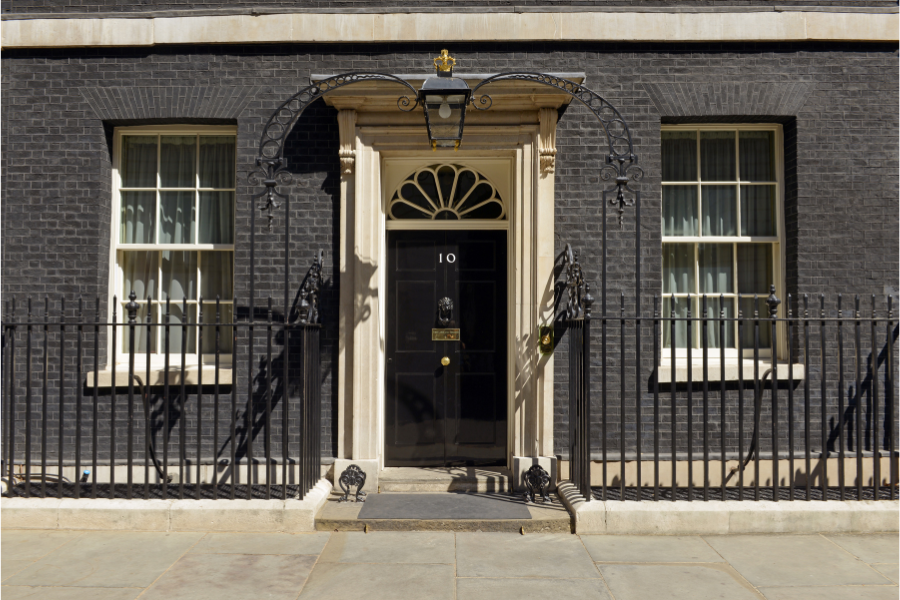
The Spring Budget sets out government spending for the next 5 years, this budget has been anticipated as being a particularly important budget, as it is likely the last budget before the 2024 general election. Alice Pugh looks at the key announcements from this budget.
Office for Budget Responsibility
On the day of the budget economic forecasts for the next 5 years are released by the Office for Budget Responsibility (OBR). These forecasts are important as they show the impact that the Spring statement will have in the near, medium and long term. The main findings in the OBR report on this budget have been:
The next few years are likely to be characterised by further weak growth, similar to that seen since 2011 in the UK.
- In 2023 GDP only grew 0.1% in 2023, 0.4% lower than anticipated growth in November 2023. In 2024 the OBR forecasts that the economy will grow 0.8%, as interest rates fall, and real incomes start to recover. In 2025 GDP growth is expected to increase to 1.9%, before falling back to its assumed trend rate of 1.6% by 2028. Announced policies in this budget are anticipated to provide a small temporary boost to demand in the near term and supply in the medium term, potentially raising real GDP by 0.2% in 2028-29
Consumer Price Inflation (CPI) continues to fall.
- CPI was 4.2% in the final quarter of 2023, 0.6% lower than the OBR had forecast last year, with the OBR now anticipating that CPI will fall to 2.2% this year, and then to 1.5% in 2025. The lower inflation is mostly driven by falls in global energy prices over the next couple of years. It is also anticipated that domestic inflation will weaken, as falling energy prices pass through the economy and labour markets begin to loosen. Though there is a risk that widening conflict in the Middle East could lead to a spike in energy prices, leading to increased inflationary pressures again, with their high-level forecast in this scenario seeing inflation reach 6%
Living standards are likely to return to their pre-pandemic levels in the medium term
- 2022-23 remains the fiscal year with the largest ever year-on-year decrease in living standards since records began in the 1950s. It is anticipated that living standards though will recover to their pre-pandemic levels by 2025-26, two years earlier than the OBR was anticipating. This quicker recovery is largely due to the negative terms of trade shock because the price of imported energy has unwound quicker than expected. Policies in the budget also provide a non-negligible boost to household incomes, with the change in the main rate of national insurance being the main contributor
Little headroom, little government spending
- On average, since 2010 Chancellors have kept around £26.1bn of headroom for managing their fiscal rules however, this budget sees only £9bn in headroom being left. This will leave the next government little room to manoeuvre based on these policies and any shocks to the economy could see the headroom lift quickly vanish, with government spending expected to grow by 1% in real terms over the next 5 years

Tax and Income Support
- National Insurance cut by 2p in the pound for employees and the self-employed
- New rules for Non-dom tax regime from April 2025, for UK residents whose ‘permanent home’ is overseas
- £5,000 “British ISA” tax allowance for individual savers to invest in UK-listed companies
- A new British Savings bond will be launched in April, delivered by state-owned National Savings and Investments, offering a guaranteed fixed rate for 3 years
- Longer repayment period for those on benefits taking out emergency budgeting loans from the government
- Debt relief order £90 fee scrapped
- Cost of living pressures fund to continue for another 6 months
- The high-income child benefit charge threshold will change from April 2026, to apply to collective household incomes rather than individual, with the threshold to raise to £60,000 and the taper to extend to £80,000
Business and investment
- Small Business VAT threshold registration to raise from £85,000 to £90,000 from April
- Tax reliefs for touring and orchestral productions made permanent
Transport and Energy
- Fuel duty remains frozen for another year, with a 5p cut in fuel duty expected this month
- Purchase of Wylfa Nuclear site (160m)
- “Windfall” tax on the profits of energy firms extended until 2029
- Air passenger duty to increase for business class tickets
Housing
- Cuts in the higher rate of tax paid on profits from selling property from 28% to 24%
- Tax breaks for owners of holiday lets scrapped
- Stamp duty relief for those buying more than one dwelling will be abolished
Cigarettes, Vapes and Alcohol
- Freeze on alcohol duty extended until February 2025
- New tax on vaping products implemented from October 2026
- Existing tax on tobacco to increase, to maintain the “financial incentive to choose vaping over smoking”
This blog was written by Alice Pugh, Policy and Data Analyst City-REDI / WMREDI, University of Birmingham.
Disclaimer:
The views expressed in this analysis post are those of the author and not necessarily those of City-REDI / WMREDI or the University of Birmingham.
